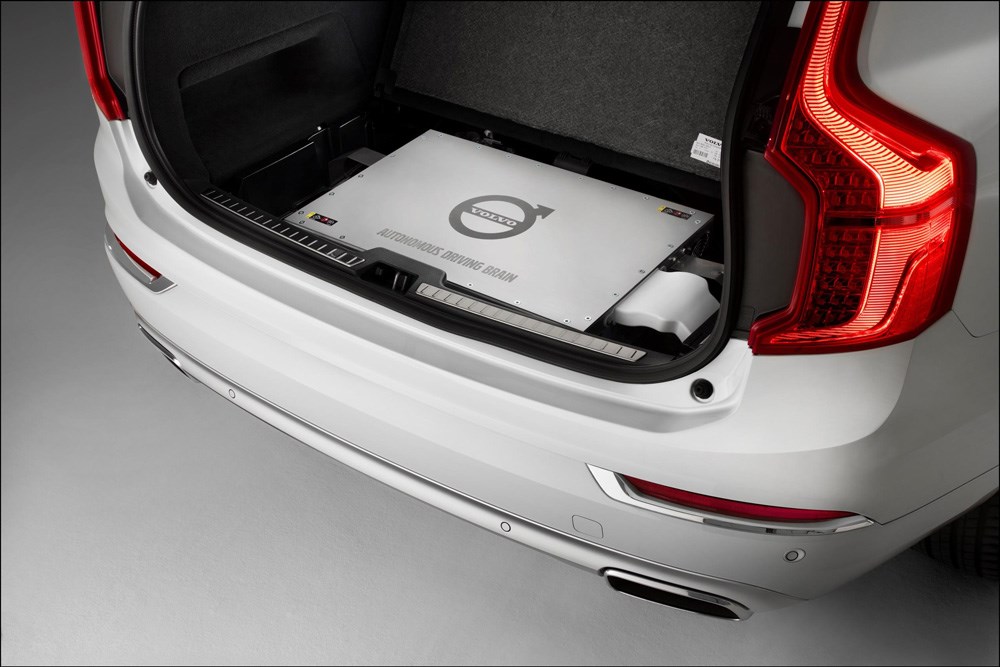Volvo has promised to develop the next generation of self-driving vehicles by 2021.
The company announced that it has struck a deal with NVIDIA, an artificial intelligence specialist which already builds self-driving systems for Tesla and Audi.
Volvo's self-driving fleet will use artificial intelligence to recognise objects around vehicles, anticipate threats and navigate safely, it was announced today.
Nvidia and Volvo will team up with a number of other experts to develop a new line of autonomous cars by the start of the next decade.
The companies' new venture, called Zenuity, will provide Volvo Cars with self-driving software which will also be sold to other carmakers.
Volvo said the next generation of self-driving vehicles will use NVIDIA's Drive PX AI module, an autonomous system used by Tesla, Audi and Toyota.
The system uses data from cameras and radar inputs, then compares this information to a high-definition map to find a safe course for the vehicle.
The companies hope new safety measures will allow the cars to pass crash test safety tests in Europe and the US.
NVIDIA also announced it will be working with ZF and Hella, German part supplies which will provide specialised cameras, sensors and steering technology.

And Volvo and NVIDIA are teaming up for a driverless car pilot scheme called 'Drive Me', announced earlier this year.
'Our vision is that no one should be killed or seriously injured in a new Volvo by the year 2020,' said Marcus Rothoff, director of the Autonomous Driving Programme at Volvo Cars.
'NVIDIA's high-performance and responsive automotive platform is an important step towards our vision and perfect for our autonomous drive program and the Drive Me project.'
Volvo's Drive Me autonomous pilot programme will ask drivers in Gothenburg, Sweden, to try out Volvo’s XC90 cars equipped with latest driverless technology.
'Volvo's Drive Me project is the ideal application of our DRIVE PX 2 engine and deep learning,' said Rob Csongor, vice president of Automotive at NVIDIA.
'We are bringing years of work by thousands of NVIDIA engineers to help Volvo achieve its safety goals and move self-driving cars from Gothenburg to the rest of the globe.'
Volvo announced it hopes to release cars equipped with self-driving technology for by 2021.
It is not yet known if the vehicles will be released worldwide.
How do autonomous cars work?






